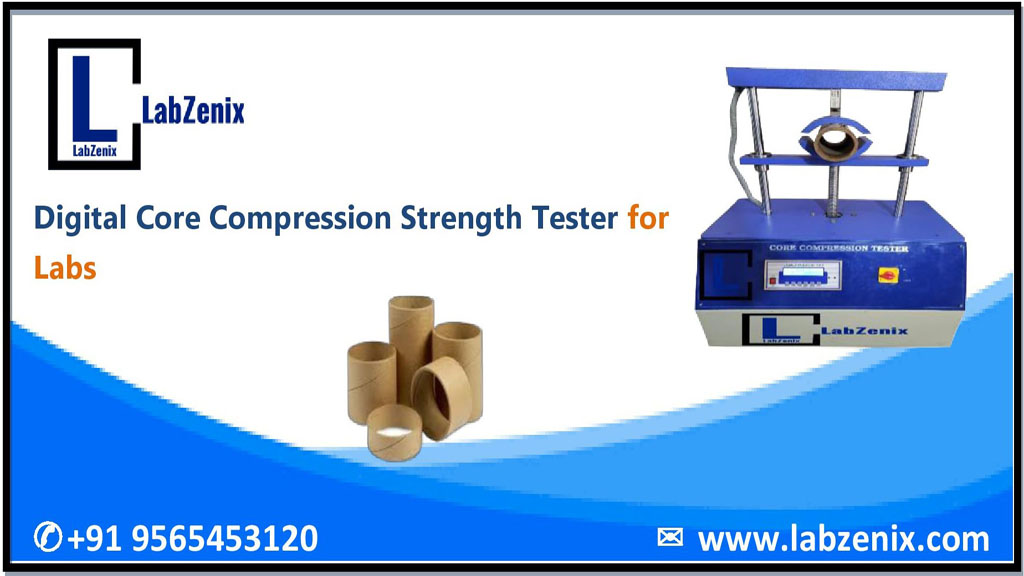Digital Core Compression Strength Tester for Labs
Digital Core Compression Strength Tester for Labs- LabZenix
LabZenix offers Digital Core Compression Strength Tester for Labs—designed for precise core strength testing, ensuring quality, accuracy, and lab efficiency.
Description
Digital Core Compression Strength Tester for Labs: A Comprehensive Guide
In modern laboratories, accurately measuring the compressive strength of core samples is crucial for industries like construction, geology, and material science. The Digital Core Compression Strength Tester for Labs is an advanced instrument designed to provide precise and reliable results. This guide explores its features, benefits, applications, and frequently asked questions to help you understand why this device is essential for lab testing.
What is a Digital Core Compression Strength Tester for Labs?
A Digital Core Compression Strength Tester for Labs is a high-precision machine used to determine the compressive strength of cylindrical core samples, such as concrete, rock, or other construction materials. Unlike traditional manual testers, this digital version ensures accuracy, efficiency, and ease of operation with automated data recording and analysis.
Key Features of the Digital Core Compression Strength Tester for Labs
High-Precision Load Cell – Delivers accurate force measurements with minimal error.
Digital Display & Data Logging – Real-time results are displayed and stored for further analysis.
Automatic Peak Load Detection – Captures the maximum load before sample failure.
Adjustable Test Speed – Allows customization based on material type and testing standards.
Robust Construction – Made from high-grade steel for durability and long-term use.
User-Friendly Interface – Simplifies operation with intuitive controls.
Safety Mechanisms – Includes overload protection and emergency stop functions.
Applications of the Digital Core Compression Strength Tester for Labs
The Digital Core Compression Strength Tester Manufacturer for Labs is widely used in various industries, including:
Construction & Civil Engineering – Testing concrete cores for structural integrity.
Geotechnical & Mining – Evaluating rock strength for tunneling and excavation.
Material Science Research – Studying the mechanical properties of new composite materials.
Quality Control Labs – Ensuring compliance with industry standards like ASTM, IS, and BS.
How Does the Digital Core Compression Strength Tester for Labs Work?
Sample Preparation – The core sample (usually cylindrical) is trimmed to the required dimensions.
Placement in the Tester – The sample is positioned between the compression plates.
Applying Load – The machine applies a gradually increasing force until the sample fails.
Data Recording – The digital system records peak load, deformation, and compressive strength.
Analysis & Reporting – Results are displayed and stored for quality assessment.
Advantages of Using a Digital Core Compression Strength Tester for Labs
Higher Accuracy – Eliminates human errors associated with manual testing.
Time Efficiency – Faster testing with automated processes.
Repeatable Results – Ensures consistency across multiple tests.
Compliance with Standards – Meets international testing protocols.
Enhanced Safety – Reduces risks associated with manual load application.
FAQs About the Digital Core Compression Strength Tester for Labs
1. What is the maximum load capacity of a Digital Core Compression Strength Tester for Labs?
Most models range between 1000 kN to 3000 kN, depending on the application.
2. Can this tester be used for both concrete and rock samples?
Yes, the Digital Core Compression Strength Tester for Labs is versatile and can test various materials, including concrete, rock, and asphalt.
3. How often should the machine be calibrated?
Calibration should be performed annually or as per the manufacturer’s guidelines to ensure accuracy.
4. Is training required to operate this machine?
Basic training is recommended to understand the controls, safety features, and testing procedures.
5. What maintenance is needed for the Digital Core Compression Strength Tester for Labs?
Regular lubrication, cleaning, and inspection of load cells and moving parts are essential for optimal performance.
6. Does it come with software for data analysis?
Many advanced models include software for real-time data logging, analysis, and report generation.
7. What safety features are included?
Overload protection, emergency stop buttons, and secure sample holding mechanisms are standard safety features.
8. Can the test speed be adjusted?
Yes, the Digital Core Compression Strength Tester Supplier for Labs allows adjustable test speeds to comply with different testing standards.
9. What is the difference between digital and hydraulic compression testers?
Digital testers offer automated data recording and higher precision, whereas hydraulic testers require manual intervention.
10. Where can I purchase a reliable Digital Core Compression Strength Tester for Labs?
Reputable lab equipment suppliers and manufacturers provide certified machines with warranties and support.
Contact – LabZenix

